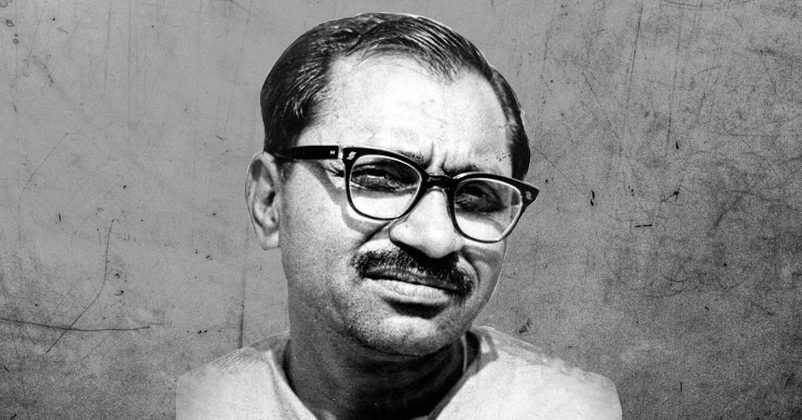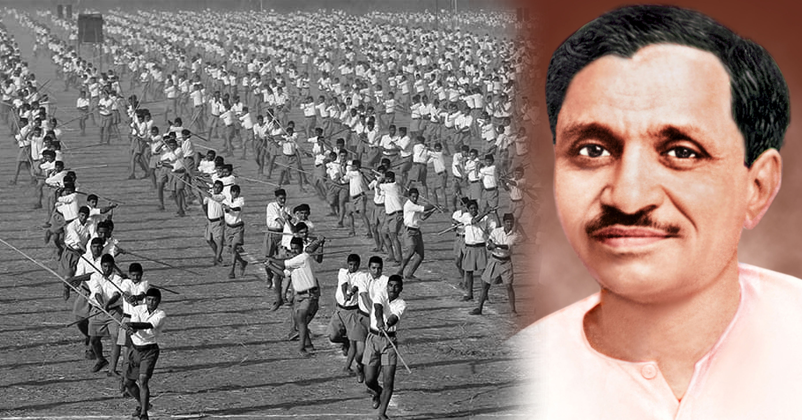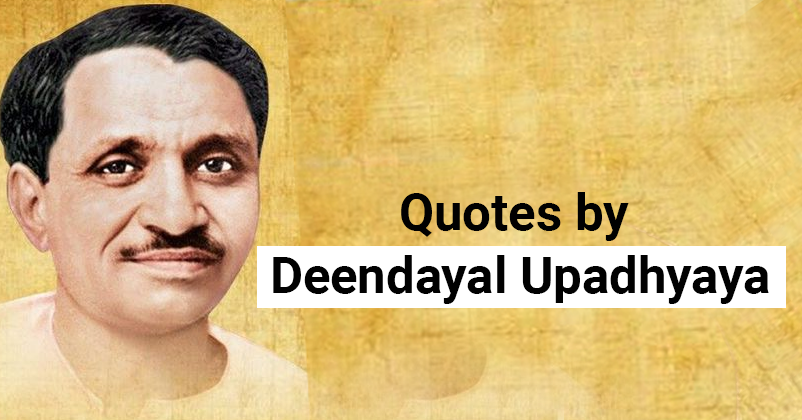Bharat remembers Pt. Deendayal Upadhyaya on his birth anniversary (25 September 1916- 11 February 1968)
25 Sep 2023 12:37:45

Pandit Deendayal Upadhyaya was an eminent Bharatiya thinker, economist, writer, editor, political scientist, journalist, sociologist, historian, thinker, employer and philosopher,social worker and politician. He who was one of the leading lights of the Bharatiya Jana Sangh, the erstwhile avtar of thepresent day Bharatiya Janata Party. He was born on 25 September 1916 in a poor and religious Hindu Brahmin family in the village Chandrabhan, now called Deendayal Dham, located 26 km away from Mathura district head quarter.
His father, Bhagwati Prasad, was a well-known astrologer and his mother Shrimati Rampyari was a religious-minded lady. Both his parents died when he was eight years old and he was brought up by his maternal uncle. Deendayal was a proponent of an alternative model of governance and politics.
He argued that neither communism nor capitalism were suitable for Bharat. Upadhyaya conceived the political philosophy Integral Humanism. He believed in Swaraj ("Self-governance"). He is also well known for the giving mantra of Antyodaya to the country- bringing the last person in the line to the first person in the queue. He died under suspicious circumstances and was found dead on 11 February 1968 at Mughal Sarai railway yard (now known as Pt. Deendayal Upadhyaya Junction named after him).
His Personal Life
Life of Pandit Deendayal Upadhayaya has been grueling and unfortunately difficult but in spite of his troubling personal life, he did exceedingly well academically. He stood first class first in his tenth Ajmer Board, securing a distinction in every subject for which he was awarded gold medal and scholarship by Maharaja Kalyan Singh of Sikar. He went to Pilani for pursuing intermediate and yet again won a gold medal and scholarship by Ghanshyam Das Birla.
Deendayal went to Kanpur and joined Sanatan Dharm College for pursuing Bachelor degree in English Literature. His friend Balwant Mahashabde played an instrumental role in him joining the RSS in 1937. A few years later, he became an RSS pracharak.He came in contact with Dr. Hedgewar-the founder of RSS and gradually started devoting time to the activities of the organisation. After passing graduation with first class he went to St. John’s College, Agra for pursuing his post-graduation, he successfully took the Administrative Service Examination, where during the selection interview he was ridiculed for wearing dhoti, kurta and cap. This was the first instance of him being called Panditji, although in the later days of his life it was used with immense affection by his followers.

Dedicated whole life to RSS
Pandit ji dedicated his entire life for the aim and mission of the organisation and to organise the society on the ideas and principles of R.S.S. Shanti Bhushan writes, “Deendayal always wanted to dedicate his life to the country, because he believed that service of the country was not possible after taking up a government job while the country was in bondage. So he dedicated his life to the service of the country, and for this he chose the medium of the R.S.S.”
In 1940, the founder of R.S.S. Dr. Hedgewar died and Muslim League was intensely demanding a separate Muslim state. Deendayal opposed the partition demands and worked to combat Muslim fundamentalism and also to integrate the Hindu society. From 1942 onward, he dedicated himself to full time work in R.S.S., attended forty-day summer vacation R.S.S. camp at Nagpur and hence, became a lifelong pracharak after successfully finishing two year training in the R.S.S. education wing. He was regarded as an ideal swayamsevak essentially because his discourse reflected the pure thought-current of the Sangh.
Dr.Shyama Prasad Mukherjee realised the necessity of forming an alternative to the Congress on all Bharat basis while R.S.S. too felt a need to from political party to protect its interest. Dr.Shyama Prasad Mukherjee resigned from Nehru cabinet in 1950 opposing Nehru- Liaquat Ali Agreement terming it as unilateral surrender of Bharatiya interests to Pakistan. In September 1951, Dr. Syama Prasad Mookerjee and Deendayal Upadhyaya launched the B.J.S. in Lucknow, Uttar Pradesh. On 21st October, 1951 All Bharat Convention was held in Delhi to launch Jan Sangh where Dr. S.P. Mukherjee was elected as the founder President and Deendayal was the General Secretary. First National Conference of the B.J.S. was held on 29-31 December, 1952 in Kanpur.
He remained General Secretary of B.J.S. for fifteen years (1953-67). In the Calicut session of B.J.S. held in December 29-31, 1967, he was elevated to the position of President after the death of Dr. Mookerjee. He remained President of B.J.S. only for forty-three days. His untiring efforts made BJS a strong political force to be reckoned with while effectively building up and strengthening the network of Jan Sangh throughout Bharat. He was found dead on railway tracks of Mughal Sarai (Now Deendayal Upadhyaya Nagar)on 11 February, 1968. Mystery of his death still remains unsolved. Sunder Singh Bhandari said, “It was his tremendous dedication and inexhaustible capacity for contact with the people that wove a country wide organisational network for the Jan Sangh.
Antyodaya Diwas
Indian Prime Minister Narendra Modi designated 25 September as a national holiday in 2014 to commemorate the birth anniversary of the late Pandit Deendayal Upadhyaya. Antyodaya Diwas is celebrated annually to mark the birth anniversary of Pandit Ji. Antyodaya means "uplifting the poorest of the poor," and the day is commemorated with the goal of reaching out to society's last person.

Quotes by Deendayal Upadhyaya
Dharma is very wide concept which concerns all aspects of life sustaining the society."
In Bharat the Principles of Ethics are termed as Dharma--The Laws of Life.
"The fundamental principles of Dharma are eternal and universal. However, their implementation may differ according to time, place and circumstances."
"Religion means a creed or a sect and it does not mean Dharma."
"A Nation is a group of persons who live with 'A Goal', 'An Ideal', 'A Mission' and look upon a particular piece of land as the Motherland. If either of the two--The Ideal and The Motherland--is missing, then there is no nation."
"It is essential that we think about 'Our National Identity' without which there is no meaning of 'Independence".
“Unity in diversity and the expression of unity in various forms has remained the thought of Bhartiya Culture."
Here in Bharat, we have placed before ourselves the ideal of the four-fold responsibilities of catering to the needs of Body, Mind, Intellect and Soul with a view to achieve the integrated progress of Man."
"The longings for Dharma, Artha, Kama and Moksha (the four kind of human effort) are inborn in man and satisfaction of these in an integrated way is the essence of Bhartiya Culture."